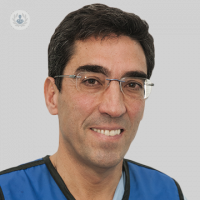The goal in the treatment of arrhythmias is to improve the quality of life and prolong
Written by:Arrhythmias are much more common than we think. Although we have all noticed“rollover” harmless the heart, you should know that some arrhythmias can be life threatening.
¿When to seek medical
?
When beating« note, rare»the heart (palpitations ), dizziness or loss of consciousness, chest pain or shortness of breath. Some people with arrhythmias have no symptoms and are found incidentally by taking pulse or blood pressure. Besides the electrocardiogram (which is the key ), a comprehensive evaluation is important in order to establish severity and prognosis.
¿How are arrhythmias treated
?
The goal in the treatment of arrhythmias is to restore normal sinus rhythm, improve life quality and prolong. Sometimes not require treatment, although it is recommended to optimize lifestyle, quit smoking, exercise and reduce alcohol intake. In other cases, use drugs, electric shocks or radiofrequency ablation catheters through internal. For many arrhythmias, this treatment is the ideal treatment because it's healing. It is a simple intervention that is performed under local anesthesia and involves less than 24 hours of hospitalization. Within a few days the patient performs normal life. When the heart beats too slow, implanted pacemaker.
¿What is the most common arrhythmia
?
Atrial fibrillation, which Aphek¬ta to over a million Spaniards ( above 40 years 4.4% have atrial fibrillation ). The negative consequences of atrial fibrillation are varied, ranging from stroke to promote slow performance of the heart. The most common is generally impaired quality of life, in some patients can be very significant. But not all atrial fibrillation are far from equal. The call begins and ends paroxysmal when spon - taneously. When held, the call¬ persistent or perma, nent (if ya gonna spend your entire life with her). In our country, the treatment of fibrillation auri¬cular probably dema¬TOO conservative. We uti¬lizando drugs 20 years ago with little news and reco¬mended little radiofrequency ablation, when he has shown very good results when performed by experienced teams with high quality technical means. Ideal candidates are people under 70 years, with a normal heart and repeated and symptomatic episodes of atrial fibrillation despite treatment. In these patients, ablation can achieve excellent clinical results.




